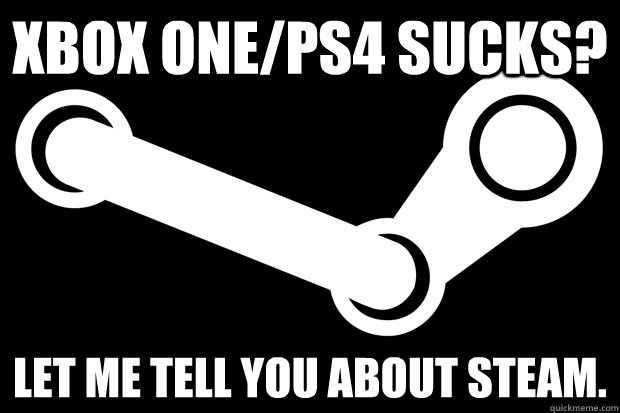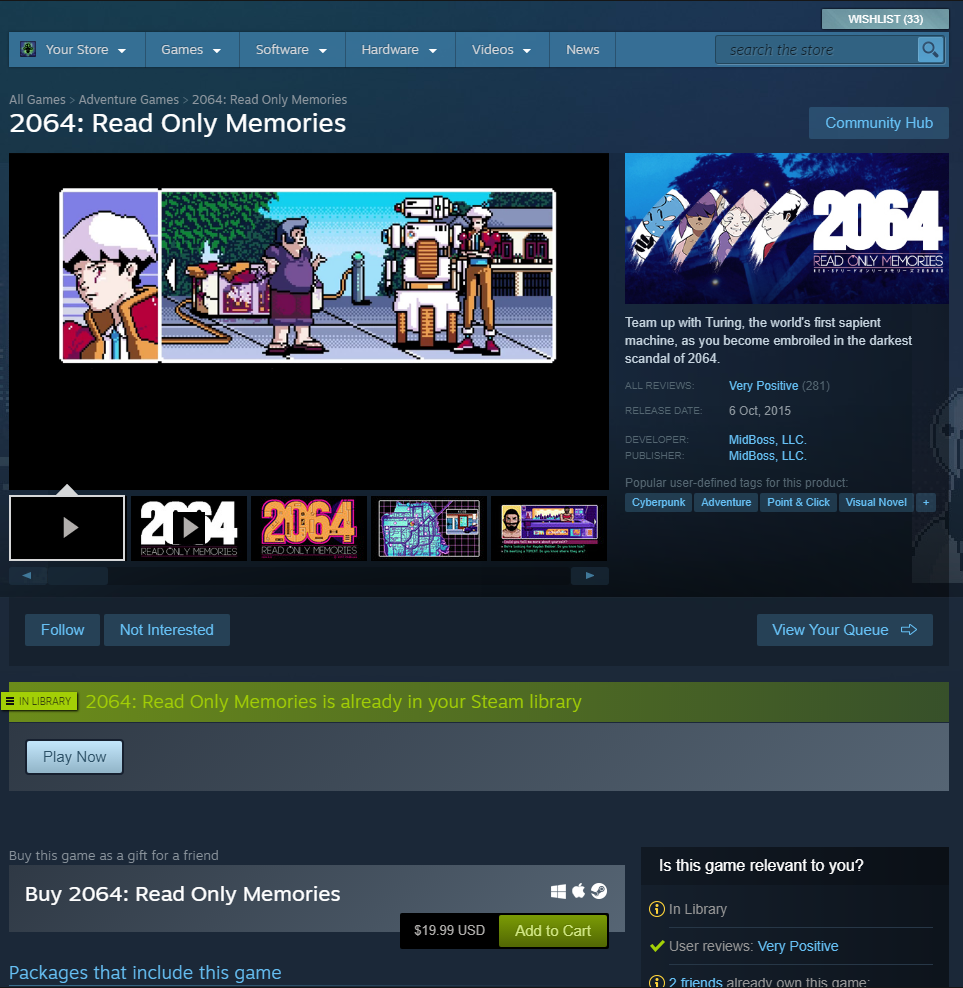I haven’t played a game seriously in months. I spent August and September travelling, and while I was away Blizzard completely rebuilt Mercy from the ground up. Mercy was my main (by a long shot), so it felt like I was starting over with the character. I kind of lost my passion for Overwatch, so I’ve been kicking the can around. I’ve fired up Witcher 3 and Civilization VI, but neither grabbed me. This afternoon I realised that what I wanted was something exciting, easy to start, and not requiring too much brain on a Sunday afternoon. Hopefully that would rekindle my relationship with my gaming rig.
So I fired up Steam, hoping to skim through the list of 334 games I have already purchased and find something that fit the bill. Surely, after years of forking out for sales and bundles, I have something in my library to pass the time. Back in February, I bought the Humble Freedom Bundle. Over 30 games, many of which I have never heard of. One of those definitely fits the bill, so let’s have a look. Fortunately, I remembered to build a category so that I could find them later.
So, what’s selling you on this game? That tiny icon that looks like a smiley face made of a Tori gate? Maybe the title, or the pixel art in the background? It’s the Recent News, which points out that the game is four years old right? I’ll tell you what’s not helping: anything that I would expect, like genre, gameplay style, screenshots or video. Thing is, that information is available. It’s not hidden… just not somewhere you might expect to find it… or is it?
Oh yeah, there it is! Synopsis. Tags. Genres. Videos and screenshots. Review summary. What’s that? It’s the Store Page. That’s right, the only time that Steam is interested in helping you make a decision about a game is when you might be forking over some money. Presumably, once you’ve purchased a game, you know what it’s about, right? Well, I doubt most gamers can name more than half the titles in their Steam library. Lifehacker has actually devoted a lengthy article to helping you keep it organised. What it doesn’t do is help you know what each game is about, and why you bought it.
The really galling thing is that the Library page is so empty. There’s plenty of room to fill with actually important information. And this is the era of personalisation. While Facebook and Google are under pressure for perhaps going overboard with their quest to give you what you want before you even know you want it, Valve seems to be content with a UI design from the late 90s and the usability of Windows 3.1. Even as I was starting to write this post, I realised that if any other Silicon Valley company were going to solve my problem, I wouldn’t even be browsing for a game. I’d fire up Steam, and there would be a ranked list of recommendations based on time of day, what I’d been playing lately, and that screenshot I shared on this day last year.
Actually, I’d be playing a game instead of writing a blog post about playing a game. Can somebody recommend me something? It has to be exciting, easy to get into, and not require too much brain on a Sunday evening.


